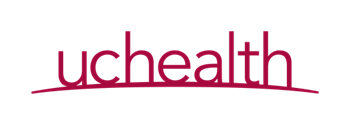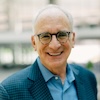Well-Being and Cancer at Work (WeCanWork)
A Total Worker Health® intervention to improve cancer survivors’ well-being and work outcomes by enhancing oncology care team support.
About the WeCanWork program
/photo-1606166155766-87872211cd0e.webp?sfvrsn=21749fbb_0&MaxWidth=223&MaxHeight=335&ScaleUp=false&Quality=High&Method=ResizeFitToAreaArguments&Signature=8CB98D3EB36EA26811677019A8E92E5E5C06EFA8)
Cancer survivors face many challenges when they return to work during and/or after their treatment. They experience worse well-being when their changed physical and cognitive abilities do not align with their job demands. Oncology teams do not have a work-specific supportive service to refer patients to.
The Well-Being and Cancer at Work (WeCanWork) program aims to improve working cancer survivors' access to experts who assess their ability to continue working during periods of illness and disability. WeCanWork also aims to empower patients who want to work and oncology care providers to support patients through occupational medicine referrals.
Recently, the WeCanWork program created a simple and efficient referral process for oncology practices to send their patients to occupational medicine consultations. The program is led by the Dean of the Colorado School of Public Health, Dr. Cathy Bradley, and is currently in its implementation stage.
This study aims to longitudinally assess how cancer diagnosis impacts employment, financial, and well-being on employed patients treated in community- and academic-based oncology practice settings. Through participatory research approaches, we will engage community- and academic-based oncology care teams and occupational medicine practices to identify challenges in providing work-related support to cancer patients and refine the design of a Total Worker Health training-based intervention to improve working patients’ economic and well-being outcomes.
The WeCanWork study includes three aims:
1. Longitudinally assess the employment, financial, and well-being impact of a new solid tumor cancer diagnosis on employed men treated in community- and academic-based oncology settings.
2. Engage with a community- and academic-based oncology care team and occupational medicine practice to identify challenges in providing work-related support to patients and to refine the design of a Total Worker Health (TWH) training-based intervention to improve working patients’ economic and well-being outcomes
3. Longitudinally assess a TWH-tailored employment counseling intervention in the community- and academic-based oncology practices to benefit cancer survivors’ employment and well-being outcomes.
Bradley CJ, Dye-Robinson A, Dally M, Schwatka N, Newman LS, Tenney L. Short-term employment changes of men newly diagnosed with cancer: well-being of cancer survivors at work study (WeCanWork). J Cancer Surviv. 2025 Mar 1. doi: 10.1007/s11764-025-01754-z. Epub ahead of print. PMID: 40025002.
Schwatka, NV, Dally, M, Dye-Robinson, A. Tenney, L, Brown CE, Goering, M, Williams B, Newman LS, Bradley, CJ. WeCanWork study: well-being of male cancer survivors working physically demanding jobs. BMC Public Health 25, 2025. https://doi.org/10.1186/s12889-025-23147-8.
Tenney L, Brown CE, Schilz M, Goering M, Dally M, Dye-Robinson A, Williams B, Newman LS, Bradley C. Engaging Oncology and Occupational Medicine to Inform Design of a Total Worker Health® Intervention to Address Employment, Financial, and Well-being Outcomes in Cancer Survivors. J Occup Environ Med. 2024 Nov 1;66(11):e537-e543. doi: 10.1097/JOM.0000000000003204. Epub 2024 Aug 16. PMID: 39146311; PMCID: PMC11869796.
Yabroff KR, Bradley C, Shih YT. Understanding Financial Hardship Among Cancer Survivors in the United States: Strategies for Prevention and Mitigation. J Clin Oncol. 2020 Feb 1;38(4):292-301. doi: 10.1200/JCO.19.01564. Epub 2019 Dec 5. PMID: 31804869; PMCID: PMC6994250.
Bradley CJ, Brown KL, Haan M, Glasgow RE, Newman LS, Rabin B, Ritzwoller DP, Tenney L. Cancer Survivorship and Employment: Intersection of Oral Agents, Changing Workforce Dynamics, and Employers' Perspectives. J Natl Cancer Inst. 2018 Dec 1;110(12):1292-1299. doi: 10.1093/jnci/djy172. PMID: 30346557.
de Moor JS, Alfano CM, Kent EE, Norton WE, Coughlan D, Roberts MC, Grimes M, Bradley CJ. Recommendations for Research and Practice to Improve Work Outcomes Among Cancer Survivors. J Natl Cancer Inst. 2018 Oct 1;110(10):1041-1047. doi: 10.1093/jnci/djy154. PMID: 30252079; PMCID: PMC6454422.
Are you a part of an oncology clinic looking to recruit patients to occupational health resources or would like to learn more about WeCanWork? Check out our resources below.
- WeCanWork Program Overview PowerPoint
- WeCanWork Tip Sheet
- WeCanWork Patient Intake Script
- WeCanWork Recruitment Flyer
Questions? Contact our team at [email protected].
In the News
Colorado School of Public Health Launches Innovative Program to Support Working Cancer Patients
A New Colorado Program Supports Working Cancer Patients
Center for Health, Work & Environment receives award to continue National Center of Excellence for Total Worker Health®
Our team

Cathy Bradley PhD
- Cancer Center
- Colorado School of Public Health - Office of the Dean
- Colorado School of Public Health Administration
- Department of Health Systems, Management & Policy
Cathy J. Bradley, PhD, is the Dean of the Colorado School of Public Health and the Deputy Director of the University of Colorado Cancer Center. Dr. Bradley is a health economist and holds the Paul A. Bunn, Jr. Endowed Chair in Cancer Research. Prior to joining the University of Colorado, she was the founding Chair of the Department of Healthcare Policy and Research, at the Virginia Commonwealth University School of Medicine.
Dr. Bradley received a Bachelor’s degree from Old Dominion University and a Master’s of Public Administration and PhD in Health Policy and Administration from the University of North Carolina Gillings School of Public Health.
Dr. Bradley’s research focuses on decisions made at the intersection of work, health insurance, and cancer, and seeks to explain how when faced with a serious and expensive path to treat illness such as cancer, many workers remain employed to keep employer-based health insurance, despite needs for treatment and convalescence. This research has extended to families and caregivers and their financial consequences. Within this realm, Dr. Bradley concentrates on policies that reduce disparate outcomes and financial burden among people who must make these stark choices. She is also an expert in Medicaid and using administrative datasets to explore research questions related to health disparities. Since 1998, she has been continuously funded as a principal investigator by the National Institutes of Health, and has received funding from the American Cancer Society, the Commonwealth Fund, and other state and international agencies.
Dr. Bradley served on national advisory committees including the National Academies of Science, Engineering, and Medicine National Cancer Policy Forum and formerly served on the National Advisory Committee to the Agency for Healthcare Quality & Research. She currently serves on the Patient-Centered Outcomes Research Institute (PCORI) Methods Committee. She is also an Associate Editor for Journal of the National Cancer Institute, on the Editorial Board of the Journal of Cancer Survivorship, and was formerly an Associate Editor of Health Economics.
Dr. Bradley has received numerous awards and honors including the Women in Science, Dentistry, and Medicine Professional Achievement Award in Leadership, the Distinguished Faculty Award at Michigan State University, and the Distinguished Faculty Scholar Award at Virginia Commonwealth University.
Areas of Expertise
- Health and labor market outcomes
- Productivity costs of disease
- Health insurance
- Influence of employment-contingent health insurance on treatment and labor supply
- Healthcare delivery
- Medicaid
Education, Licensure & Certifications
-
PhD-Health Policy and Administration (Minor: Economics), School of Public Health, University of North Carolina-Chapel Hill, 1994
-
MPA-Public Administration, University of North Carolina-Chapel Hill, 1986
-
BA-Political Science, Old Dominion University, Norfolk, Virginia, 1983
Resumes/CV:
Awards
- Paul A. Bunn, Jr. Endowed Chair in Cancer Research, University of Colorado Cancer Center
- David F. and Margaret Turley Grohne Endowed Chair for Cancer Prevention and Control Research, University of Colorado Cancer Center
- Distinguished Faculty Scholar Award, School of Allied Health Professions, Virginia Commonwealth University
- Distinguished Faculty Award, College of Human Medicine, Michigan State University
- Blue Cross Blue Shield of Michigan Foundation Excellence Award for Health Services, Policy and Clinical Care
- Outstanding Researcher Award, Department of Medicine, Michigan State University
- Women in Science, Dentistry, and Medicine Professional Achievement Award, Virginia Commonwealth University
Affiliations
-
Member, National Cancer Policy Forum
-
Editorial Board, Journal of Cancer Survivorship
-
International Health Economics Association
-
American Society of Health Economists
Our partners








